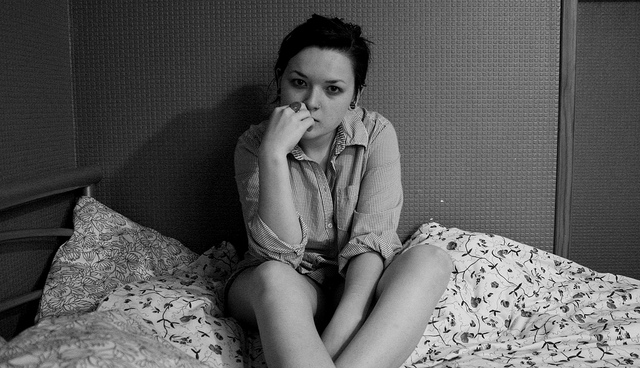
If you want a close up view of the consciousness of the world around you, all you have to do is spend some time with a group of teenagers.
When I sit in my classroom of 16 and 17-year-olds, I see a mirror of what they have been taught from their parents, friends and the community around them. I also see them struggling with their unique identities and beliefs, and who they want to be in the future. This is never more evident than when they are faced with controversial issues in the news.
Our small, rural town has a high school student body of less than 500. Our racial demographics are split almost 50/50 with black and white students, in addition to a very small Hispanic population. My students fall across diverse socio-economic, political and religious lines.
Our system encourages rigorous educational instruction and generally chooses to view the world outside the classroom as outside the teacher’s realm of expertise. I have found that even with that intention, the real world seeps in. They are learning from all the influences around them and each of these factors comes into play when they try to understand the events that no one can explain. My students want to talk about the news and how it effects them.
Even though it is summer, I see “my kids”—past and present, out and about—and I always make a point to stop and talk to them. During this past week, it has been especially difficult.
This is a story of how just two of my former students have been affected by the latest killings of black men, the death of five officers in Dallas, and the #BlackLivesMatter and #AllLivesMatter movements. This is what our future is dealing with and what many of us who care for these students are facing.
A female student was serving me at a local restaurant. I asked how she was, how her summer was going and how she and her long-time boyfriend were doing. She said, “Oh, he is mad at me.”
“What’s up?” I asked.
“I told him I don’t care about all this #BlackLivesMatter stuff and he got mad. I mean really. I don’t know these people. This doesn’t affect me. I just don’t see a point in getting all torn up about it.”
“I see,” I said. “I bet that did upset him. He is very passionate about these issues.”
“I know,” she laughed. “But he can just get over it.”
(I forgot to mention that she is black, and in this scenario it may be important, though maybe it’s not? I am struggling with understanding race issues, too.)
The following day, I just happened to hear from her boyfriend. He and my son were friends and graduated in the same class. They even traveled to the “big city” to see their first rap concert together as a gift for my son’s birthday a few years ago.
(My son’s skin is extremely pale. This friend has a dark complexion. And I am sure in that scenario it never mattered at all, to either of them.)
“Can I talk to you?” he asked, already knowing the answer.
“What’s up?” I asked.
“I broke up with [my girlfriend] and I just need some advice.”
“Well, I’m not great at the advice part, but I will listen.”
And as he spoke, he covered many topics, but a major part of the conversation boiled down to this: “I just don’t see myself in this relationship in the future if she cannot understand how much social justice means to me. You know this is something I have always felt strongly about. She knows, too. But it is different now. I can’t sit back anymore. I have to be part of a solution. I have to be active. I have to be on the front lines of this civil rights issue. And if she cannot see that this is a big deal for all of us, I just don’t think I can stay with her. I don’t see us raising a family together in the future. It hurts me to break up with her, but it hurts me more as a black man to stay with someone who cannot see the outrage and the pain.”
He went on to say a few more things that made me sit in awe of his wisdom and his self-awareness. “My love for her has not diminished, it has just changed…I learned so much in the last two years and I am deeply thankful for her teaching me that I am worthy of being loved. I respect that she doesn’t feel strongly about this. She is entitled to her feelings. I just don’t think I can see a future with us seeing these kinds of issues so differently.”
Wow. Just wow.
So the violence in this nation has another casualty—two lives separated by their inability to make sense of these issues in a way that can coexist.
And once again, my students represent a small microcosm of the world around them. Too removed to care; identifying too much to not care. Feeling called to be part of the change; having no idea how to make that happen. Knowing that these issues are a foundation of turmoil that will have to be dealt with in the future one way or another. More than two sides. Lives in upheaval, relationships torn apart, new divides—and so much left to learn about how we can coexist.
This was my response to him: “I hear you and I respect your decision. I understand it isn’t easy to go through any breakup and I cannot imagine what it feels like to have this issue be the catalyst for that. I am proud of you for following your larger purpose, if that is what you believe this is. I do know that you will make a difference in this movement if you mindfully keep making decisions with peace and unity as your goal. I also commend your ability to leave this relationship with grace and dignity and thankfulness. Many people never learn to do this. And though there are rough days involved, if your core feels at peace, you have done the right thing for you. I believe this,” and of course I told him I love him.
But that is just one aspect of this story. I am a 43-year-old white woman who falls somewhere in the middle class. What is my voice, my place, in this social justice movement? Does my ability to have such close relationships with my minority students give me a greater responsibility in this dialogue? I teach my own children, and those in my class, to not be color-blind (which I think is impossible and aims to be dismissive), but to appreciate racial diversity (as I think that is another issue that needs to be accurately addressed in our society).
But is that enough? Do I even understand all the intricacies of this situation?
And then there is the angle of the story where these young people are learning to navigate all the relationships in their lives, and at what point will we see that this generation needs active adult input on how important it is to be mindful with dealing with every individual that they encounter in all situations? And what does “mindful” even mean to them in small town, rural America?
Every time an event in the world makes the news, it affects me, partially because it affects my students. This generation needs us to listen to them.
As I write this, Cameron, the 15-year-old son of Alton Sterling—who originally made national news when he broke down sobbing in front of cameras as his mother was addressing his father’s murder—came out to face the nation again. This time he was standing tall and composed. And this time he was calling for “people in general, no matter what the race is, to come together as one united family.”
This generation needs us to listen to them.
Author: Andrea Byford
Image: Linzi/Flickr
Editor: Nicole Cameron; Renée Picard






Read 2 comments and reply